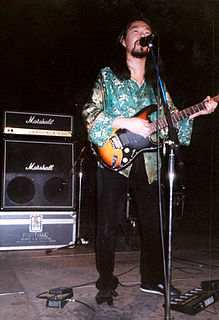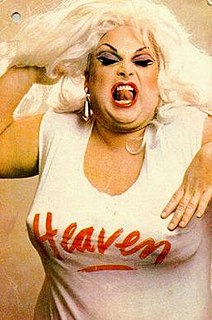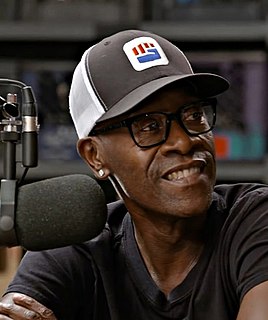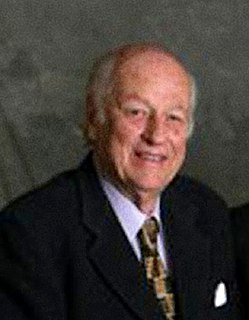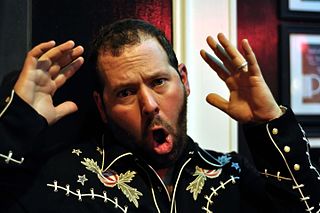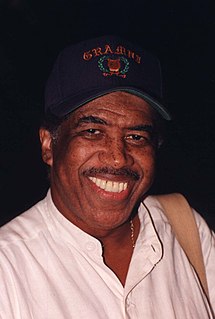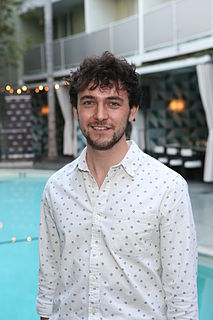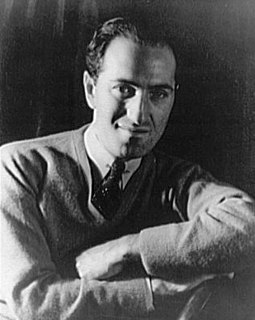Top 401 Classics Quotes & Sayings - Page 7
Explore popular Classics quotes.
Last updated on April 16, 2025.
Yes, I know, shaming, isn't it? I always say you can take the girl out of the 80s, but you can't take the 80s out of the girl. Before I wrote my first novel, I was reading one of the self-help classics – and it's as cheesy as you like, so feel free to laugh, Guardian readers – called Awaken The Giant Within, by Tony Robbins, and it inspired me to try. I like motivational books, because I like the go-getting American spirit – your destiny is in your own hands, life is what you make it, don't accept your limitations, jump before you're pushed, leap before you look.
The story of my grandmother is that of a French woman from the provinces who through her perseverance and thirst for knowledge worked her way up to become the head of a school. She belonged to a generation that didn't travel much. But she believed in Europe and she wanted Europe. And she read a lot - she knew mythology, literature and the classics very well. She passed that on to me, along with the conviction that you can earn your own position in society.
I think that Michael Myers is an icon. The bad guys, it's always the bad guys that everybody loves. It's Michael Myers, it's Freddy, it's Jason, they're like the Dracula and Frankenstein of our generation. I think it started a new wave of horror films. They're cult classics and they're something that everybody wants to watch on Halloween.
I want to sing using a throatsinging style, like for example kargyraa, but at the same time sing it like a normal way. Maybe I will try some opera. To sing a melody, and to sing not only Tuvan traditional melodies, but I would like to try Western classics, blues. I think Tuvan music and American blues are very close to each other.
What is literary tradition? What is a classic? What is a canonical view of tradition? How are canons of accepted classics formed,and how are they unformed? I think that all these quite traditional questions can take one simplistic but still dialectical question as their summing up: do we choose tradition or does it choose us, and why is it necessary that a choosing take place, or a being chosen? What happens if one tries to write, or to teach, or to think, or even to read without the sense of a tradition? Why, nothing at all happens, just nothing.
My men's clothes are traditional. I don't buy trendy clothes. I buy updated classics double breasted, three-piece suits; slacks and either T-shirts or regular shirts. Everything is monogrammed. I used to hate that more than anything. Now there are D's on everything. It started out as a joke and now, if it doesn't have a D on it, I wonder why.
I was brought into the curiosity of it because with Sony Pictures Classics, which bought the movie, they look into what the feedback is and base that off of how they release it, and you end up hearing the feedback and getting that early talk. So the reviews early on that were "bad reviews," they were kind of reviewing another movie.
[Footnote:] Pliny the Elder described a Whale called "Balaena or Whirlpool, which is so long and broad as to take up more in length and breadth than two acres of ground." This brings up again the old question: Are the classics doomed? Our ancestors believed that four years of this sort of information would inevitably produce a President, or at least a Cabinet Member. It didn't seem to work out that way.
In the classics section, she had picked up a copy of The Magic Mountain and recalled the summer between her junior and senior years of high school, when she read it, how she lay in bed hours after she should have gotten up, the sheet growing warmer against her skin as the sun rose higher in the sky, her mother poking her head in now and then to see if she'd gotten up yet, but never suggesting that she should: Eleanor didn't have many rules about child rearing, but one of them was this: Never interrupt reading.
We have to consider culture respectfully, but on the other hand, it's dangerous. When we begin talking about cultures, we begin forgetting about individuals. Every individual is unique. Mankind has common feelings and ideas, but we might have some other connections, too. For example, I might be very close to someone in New York in some way. Because of the music I like or how I like to watch soccer games, or because I like to read Russian classics.
I read some older books when I worked at Barnes And Noble, like some of the American classics. I read a lot of Hemingway. I fell in love with Hemingway's prose and with the way he wrote. I feel like he's talking to me, like we're in a bar and he's not trying to jazz it up and sound smart, he's just being him.
In New York, I was excited about the music in New York because the only music that I was more or less involved with in the South was either country and western or hillbilly music as we used to call it when I was a kid and, ah, gospel. There was no, there was no in between. And when I got to New York all the other musics that's in the world just came into my head whether it was the classics, jazz, I never knew what jazz was about all, had heard anything about jazz.
The generation now below me were born into a world where if you're a kid with raw talent now, you can roll in and land a lead in a Scorsese film. You don't have to have prove yourself by working up the ranks, doing the classics, and getting the canon under your belt in the way the great Sirs and Dames of mom and dad's generation - the [Ben] Kingsleys and [Helen] Mirrens and [Anthony] Hopkinses and people of that ilk.
One of the many things I learned at the end of that Classics corridor down which I ventured at the age of 18, in search of something I could not then define, was this, written by the Greek author Plutarch: What we achieve inwardly will change outer reality. That is an astonishing statement and yet proven a thousand times every day of our lives. It expresses, in part, our inescapable connection with the outside world, the fact that we touch other people’s lives simply by existing.
For those actors and directors who produce films which are always about the old kingdom or about heroes, you know about the fantasies related to the classics, but there is no real discussion about today's life and no discussion of the real conditions - which is really sickening. They've become part of a conspiracy, collaborators of the crime, which is lying to the general public and trying to hide the kind of criminal acts happening in many cases.
I'm not someone who has a list of great books I would read if I only had the time. If I want to read a particular so-called classic, I go ahead and read it. If I had more time, I would certainly read more, but I'd read the way I always do - that is, I'd read whatever happened to interest me, not necessarily classics.
In those days a boy on the classical side officially did almost nothing but classics. I think this was wise; the greatest service we can to education today is to teach few subjects. No one has time to do more than a very few things well before he is twenty, and when we force a boy to be a mediocrity in a dozen subjects we destroy his standards, perhaps for life.
We're in English class, which for most of us is an excruciating exercise in staying awake through the great classics of literature. These works - groundbreaking, incendiary, timeless - have been pureed by the curriculum monsters into a digestible pabulum of themes and factoids we can spew back on a test. Scoring well on tests is the sort of happy thing that gets the school district the greenbacks they crave. Understanding and appreciating the material are secondary.
In my class - in all fifth-grade classes - we were required to read 'classics,' books like 'Shiloh,' which is about a white boy and the dog he rescues. And 'Old Yeller,' which is about a white boy and the dog that rescues him. And 'Where the Red Fern Grows,' which is about a white boy and the two dogs he trains.
Some of my favourites... there's the classics like Blur and Oasis and Pulp, Suede and The Charlatans, The La's, The Smiths, The Cure, stuff like that. That was a huge part of my teen-years and bands I still listen to right through to this day, but it had a huge bearing on me as a teen and it was some of my favourite music, and is still to this day some of my favourite music.
The classics of Marxism talked of communism as a society to which a modern society should aspire, a society truly fair, where the relations of monetary exchange were not the priority but one wher the people's needs could be satisfied, and where people would not be worth more according to how much monetary wealth they acquired. Instead their value would be based on their contribution to society as a whole. It would be a society without class that would accept people based on their capabilities and their potential to contribute to that society.
Better mendacities Than the classics in paraphrase! Some quick to arm, some for adventure, some from fear of weakness, some from fear of censure, some for love of slaughter, in imagination, learning later . . . some in fear, learning love of slaughter; Died some, pro patria, non "dulce" non "et decor" . walked eye-deep in hell believing in old men's lies, the unbelieving came home, home to a lie.
I was interested in all kinds of things, whether it be Avatar, Mad Men, Troy, 300, Battlestar Gallactica, or the poems of Horace and Sappho. I always joke about this to my students, who can't quite wrap their mind around the fact that you can have a Ph.D in classics, but not do that full time. I never wanted to write anything with footnotes for the rest of my life. I always think of what I do as the kind of conversation you'd have with somebody, like a good friend, when you've gone and seen a movie together, and you come home and you start talking about it.
I guess if you have had a good education as opposed to someone who hasn't been to school, you start off on this journey having studied Shakespeare for years and years or studied classics. I suppose why people see this big divide - the boarding school boys getting all the roles - is because they feel like some people have had a head start.
Pale, nervous girls with black-rimmed glasses and blunt-cut hair lolled around on sofas, riffling Penguin Classics provocatively. [...] But it wasn’t just intellectual experiences—they were peddling emotional ones, too. For fifty bucks, I learned, you could “relate without getting close.” For a hundred, a girl would lend you her Bartok records, have dinner, and then let you watch while she had an anxiety attack.
Unlike the authors of such warrior classics as The Art of War and The Book of the Five Rings, which accept the inevitability of war and emphasize cunning strategy as a means to victory, Morihei understood that continued fighting-with others, with ourselves, and with the environment-will ruin the earth. “The world will continue to change dramatically, but fighting and war can destroy us utterly. What we need now are techniques of harmony, not those of contention. The Art of Peace is required, not the Art of War.
One of the challenges in writing the script Call Me by Your Name was that I had to find something concrete for the professor to do. In the book he is some kind of classics scholar. But I thought it would be interesting to make him into something of an art historian and archaeologist whose background was the classical world. It's always difficult when someone is supposed to be an intellectual. What do they do? You can't just film them sitting around and thinking all day. And that's what the business of the statues is all about.
I never know who's influencing me at any time. I mean, I can take a play by Brecht and adapt it, I'm consciously adapting that play, or, as I've done with the Greek classics, Euripides and Oedipus, and I'm consciously adapting that play. Whether it influences me or not, I think it's the critics, the analysts who have to decide that. Me, I don't feel that I'm under the influence of any such sources.
Jimmy Page is an excellent producer. Led Zeppelin I and II are classics. As a player he's very good in the studio, but I've never seen him play well live. He's sloppy. He plays like he's got a broken hand and he's two years old. If you put out a good album and play like a two year old, what's the purpose?
In order to be able thus to misjudge, and thus to grant left-handed veneration to our classics, people must have ceased to know them. This, generally speaking, is precisely what has happened. For, otherwise, one ought to know that there is only one way of honoring them, and that is to continue seeking with the same spirit and with the same courage, and not to weary of the search.
Go where the pleasure is in your writing. Go where the pain is. Write the book you would like to read. Write the book you have been trying to find but have not found. But write. And remember, there are no rules for our profession. Ignore rules. Ignore what I say here if it doesn't help you. Do it your own way. Every writer knows fear and discouragement. Just write.The world is crying for new writing. It is crying for fresh and original voices and new characters and new stories. If you won't write the classics of tomorrow, well, we will not have any.
Mike Tyson has to be one of my greatest all time fighters. Muhammad Ali. I like going back looking at the classics like Roberto Duran. I like the old time fighters, when you had a champion in the old days you really had a true champion. Muhammad Ali would take on anybody. You had the greats fighting everybody.
Gershwin's melodic gift was phenomenal. His songs contain the essence of New York in the 1920s and have deservedly become classics of their kind, part of the 20th-century folk-song tradition in the sense that they are popular music which has been spread by oral tradition (for many must have sung a Gershwin song without having any idea who wrote it).
The eager or dutiful persons who subject themselves to these tidal waves of the classics and the moderns find everything wonderful in an absent-minded way. The wonder washes over them rather than into them, and one of its effects is to make anything shocking or odd suddenly interesting enough to gain a month's celebrity. And so another by-product of our come-one, come-all policy is the tendency to reward cleverness, not art, and to put one more hurdle in the path of the truly original artist.






